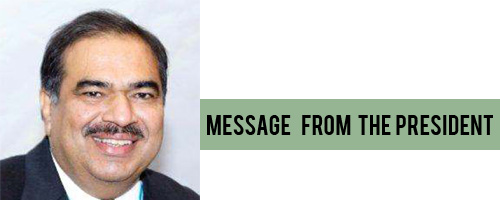 Health is considered in Islam as a blessing given by Allah SWT to human beings. The Prophet (PBUH) said, "There are two blessings which many people do not appreciate: health and leisure time. "It is a human responsibility to preserve the blessing of health.
Health is considered in Islam as a blessing given by Allah SWT to human beings. The Prophet (PBUH) said, "There are two blessings which many people do not appreciate: health and leisure time. "It is a human responsibility to preserve the blessing of health.
At the United Nations Millenium Summit in September 2000, 189 world leaders adopted the Millenium Declaration which was translated into a set of eight Millenium Developmeng Goals - best known by the acronym MDGs. These goals, with targets and indicators, have special relevance to population, development, and health, and have become important tools of monitoring human progress. The target year for achieving all MDGs has been set for 2015, with 1990 being the baseline. The Muslim countries have committed to achieving the above MDGs.
On the contrary to this commitment the health status of the Muslim countries in general, ranging from oil rich Kuwait and Saudi Arabia to Somalia and Afghanistan and the achievement in implementing the MDGs is not meeting the expected standards. Muslims form one of the biggest religious groups in the world with an estimated population of over 1.8 billion. Achieving the MDGs holds the promise of saving millions of lives; addressing the scourge of illiteracy, hunger, and malnutrition; and ensuring good health to lead productive lives. However, achieving Health MDGs 4, 5, and 6 may appear a daunting task to many developing and relatively resource poor Muslim nations.
OIC (Organization of Islamic Cooperation) in the same wake of improving the preventive and curative health standards in the under devloped Muslim countries. The 4th Islamic Conference of Health Ministers (ICHM), held in Jakarta on 22-24 October 2013, adopted the OIC Strategic Health Programme of Action (SHPA) 2014-2023. The Health Ministers also adopted a detailed implementation Plan to facilitate and guide the effective implementation of the SHPA.
The SHPA provides a framework for focused action and international collaboration for the next ten years to deal with the most pressing challenges and needs of the OIC Member States in the field of health. The adoption of the SHPA and its Implementation Plan is expected to impart a new impetus to the OIC health agenda and the programmes and activities of the OIC and its institutions in this field. FIMA is now a new partner with OIC to jointly work on these health related issues and FIMA has extended its fullest support to OIC in meeting the challenges in SHPA.
Under OIC, Muslim countries are building upon the strength of Islamic traditions self-help, solidarity and protection of the people especially the vulnerable. Many of these countries demonstrably require additional resources, hence the flow of developmental assistance needs to be increased, with the wealthier Muslim countries assuming their responsibility towards the poorer nations by providing the necessary funding and technical expertise. Without good inter-country cooperation, achieving the health related MDGs is likely to remain elusive for many Muslim nations.
Nevertheless, Muslim nations have reiterated their commitment to give high priority in providing optimum and quality health care to their population at the third Islamic Conference of Health Ministers held in Astana, Republic of Kazakhstan in October 2011 and later in Jakarta in 2013. If we are to meet the MDGs, there is no time to rest, we have to infuse a new sense of urgency to prepare for the final push to achieve the MDGs by 2015 and fulfill the hopes of millions of people in the Muslim nations.
Dr. Tanveer Zubairi
FIMA President
